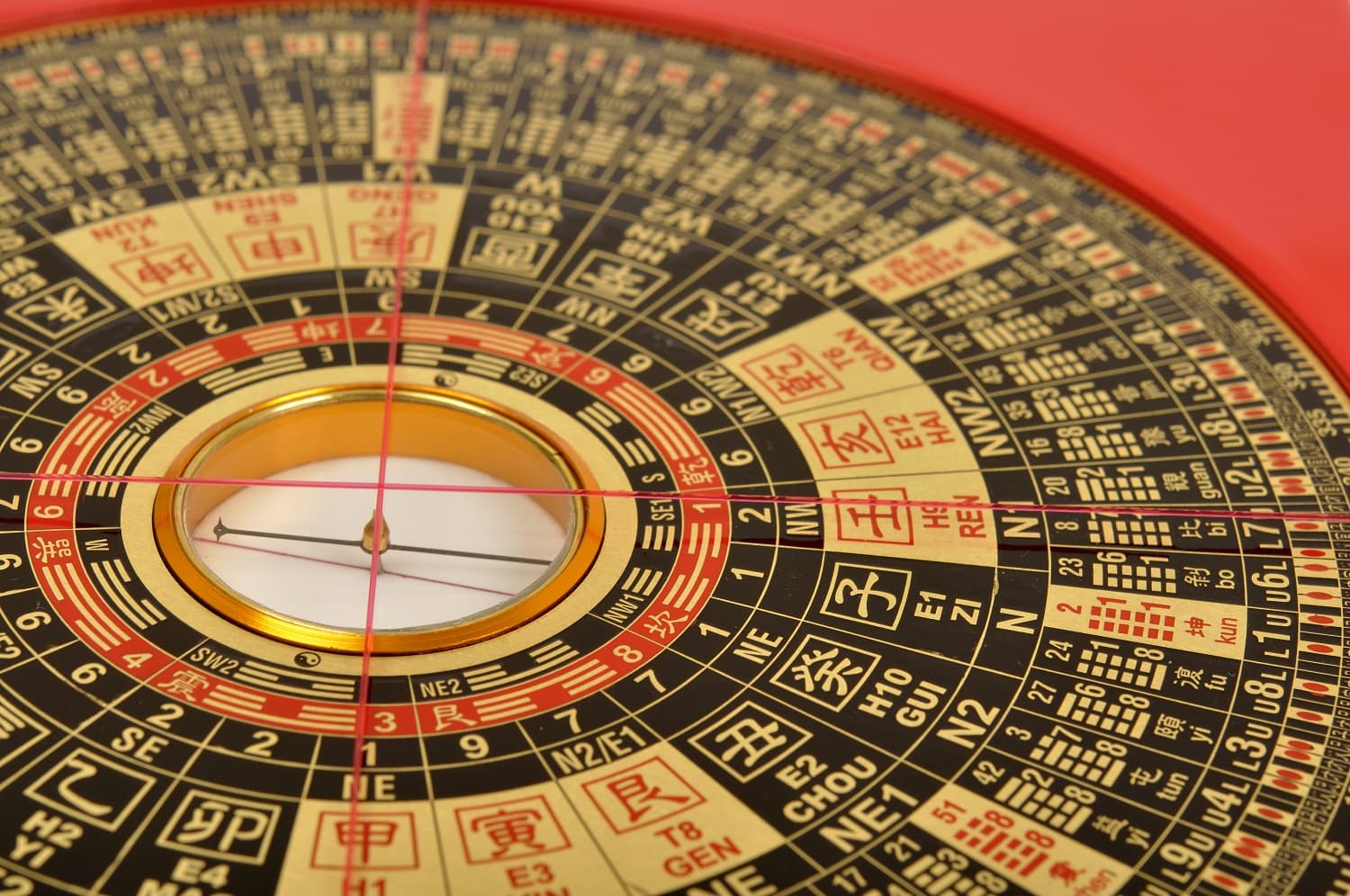What Is Feng Shui?
Feng shui is an ancient Chinese practice that involves the manipulation and arrangement of elements in the surrounding environment to attract "Chi" or positive life energy. It is believed that people are affected by their environments, both positively or negatively. Feng shui aims to remove obstacles or obstructions in order for chi to smoothly flow.
Feng shui, which means "wind and water", originates back thousands of years ago when it was used originally to choose burial sites of wealthy Chinese, as well as locations for royal palaces. People have studied the signs that the earth left behind, such as meandering streams or wind worn trees, to avoid problems of flood or wind damage during construction of important buildings.

How Does Feng Shui Work?
Classical feng shui has been used for over 4000 years and it works with the following principles:
- Chi or life force - The invisible energy that constantly runs through the earth and animates all living things
- Yin and Yang - This concept of dualism evaluates and influences balance and order
- Five Elements - Wood, fire, earth, metal and water are five important elements of nature that must resonate with each other to ensure balance and harmony. Each element is associated with its own particular forms, materials, and colors.
- Trigrams - These refer to three rows of broken and unbroken lines that make up the eight compass directions or Pa Kua.
A home or office has good feng shui if the chi flows smoothly within and around it. However, it should be noted that feng shui is considered bad if the energy created is negative. Known as “Sha Chi", bad feng shui is characterised by stagnant, unbalanced or poor quality of energy. When the conditions prevent positive energy from flowing freely, this may lead to undesirable situations like illness, financial problems or conflicts in relationships.
Poison arrows are conditions that produce sha chi. Some conditions can be altered by rearranging the five elements, while others are permanent fixtures that require remedies to help balance the energy.
What Are the Benefits of Feng Shui?
Feng shui is all about aligning the energy of one's home with that of the environment to support their goals. When the environment supports you and your energy vibration is high, you will feel happier and more capable of achieving what you want in different areas of your life like the following:
- Excellent health
- Financial stability
- Wealth
- Success in career or business
- Love
- Health relationships
- Self-esteem
What Are the Elements of Feng Shui?
The five basic elements are the guiding principles used in feng shui to build a well-balanced home and life. Feng shui practitioners suggest that these elements have their own chi signatures and each influences the lives of the residents. Learn more about the five elements, their characteristics and the colours and shapes associated with them.
Fire
- Expansive, spreading movement
- Transformative and changeable
- Warm or kind to hot or passionate
- Triangular shapes
- Colors are reds and oranges
Earth
- Stable, grounding, little to no movement
- Centered and nurturing
- Square and rectangular shapes
- Colors are browns, tans, ochre and yellows
Metal
- Contracting and rigid
- Righteous and correct
- Circles, spheres
- Colors are white, metallic and pale greys and blues
Water
- Deep, still and wise or flowing, circulating and connecting
- Cool and dark
- Clarity and wisdom
- Formless and undulating
- Colors are black, dark gray and dark blue
Wood
- Growing upward, moving energy
- Vital and active
- New growth, flexible like bamboo
- Columnar shapes
- Colors are greens, mid-blues and teals
What Can You Expect From Feng Shui?
The feng shui of a home depends on the goals of its residents. How the client communicates their goals to the feng shui master is very crucial because their words will serve as the latter's guide in balancing the energy flow in the house. During the consultation, the practitioner will spend the first 10 to 15 minutes finding out what the client wants to achieve or improve in their life.
After the short chat, the client takes the practitioner for a tour around the house so that the latter can assess the level of energy or chi in each room. Using their feng shui compass or pa kua, the practitioner checks the locations of the client's life areas such as family, wealth, health and spirituality, among others, while paying attention to the space that corresponds with the client's goals.
If the client hopes for peace and harmonious relationships, the practitioner will focus on the relationship trigram and recommend arrangements to attract positive energy to this space.
A feng shui consultation can last for 45 minutes to an hour, depending on the number of life areas that the client wants to work on. Some feng shui masters provide online feng shui sessions, which are beneficial to people living in remote suburbs and who couldn't access a qualified practitioner.
Is Feng Shui Safe?
Nothing can be safer in life than feng shui as it protects people's finances, jobs, health and relationships, among many other things. Following the recommendations of a feng shui master can make massive improvements to your life. However, you don't have to follow every instruction to a T. Even if the practitioner suggested changing the colour of the wall to purple to attract abundance, you may opt to hang purple curtains instead of repainting your bedroom wall.




